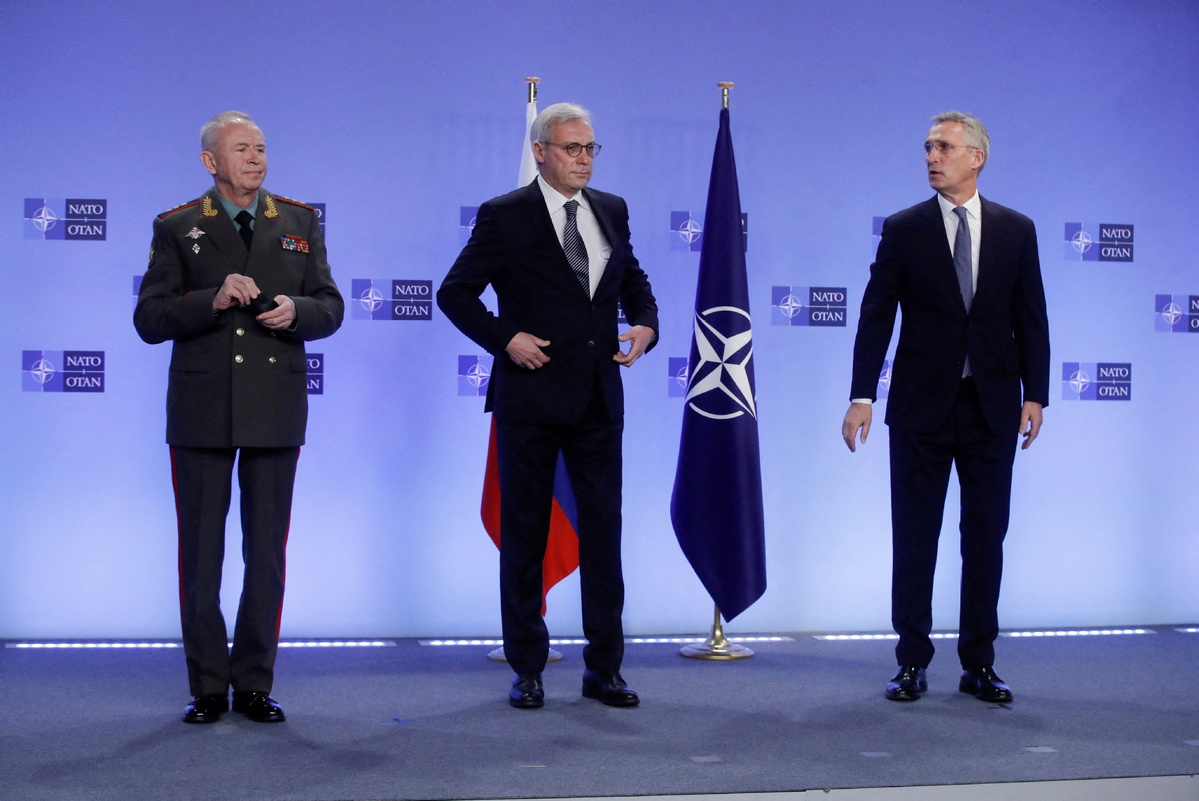Real risk of conflict if Ukraine crisis not defused: China Daily editorial
chinadaily.com.cn | Updated: 2022-01-17 21:15

Despite their failed attempt to defuse escalating tensions between Russia, Ukraine and NATO, Russian and NATO negotiators did offer some sort of silver lining by leaving open the possibility of future talks on arms control, missile deployments and ways to prevent military incidents between Russia and the West.
This is small comfort, however, when the ongoing tug of war over Ukraine is seemingly slipping inexorably toward an out-of-control scenario, considering the deep and deepening mistrust between the parties, and the obvious inability of either to take a step back.
With both sides mired in the suspicion of the other, it was good that Russia made its position clear, with Kremlin spokesman Dmitry Peskov saying on Sunday that Russia "was not considering military action even if the negotiations with the United States and NATO on security guarantees fail".
So far, both sides have made their bottom lines clear enough. And each side has rejected the other's. And with each side accusing the other of being the aggressor, the situation remains ripe for disaster.
For the US and the rest of NATO, Moscow is plotting a "false-flag operation" in eastern Ukraine to justify a full-scale invasion following its 2014 "incorporation of Crimea". They are demanding that the Russian troops now deployed near the Ukrainian border be withdrawn. However, Peskov said that the "very tense situation and very unfriendly environment" made it necessary to keep the troops in place.
Meanwhile, the two key Russian demands, for NATO to scale down its presence in countries that border Russia, and for NATO to stop taking in new members, were described as being "simply non-starters", in the words of US Deputy Secretary of State Wendy Sherman. Thus the two parties find themselves at an apparent dead-end, with neither wanting to show any weakness by taking a step back.
Russian Deputy Foreign Minister Alexander Grushko's response to the NATO refusal was a fitting illustration of where things stand at present: "If NATO opts for the policy of deterrence, we will respond with a policy of counter-deterrence. If it turns to intimidation, we will respond with counter-intimidation. If it looks for vulnerabilities in Russia's defense system, we will look for NATO's vulnerabilities. It's not our choice, but we don't have other options if we don't overturn this current very dangerous course of events." The situation is toxic for all stakeholders. Preventing a war is the only redline that matters at the moment.
NATO is making a hue and cry about Russia's aggressiveness, but it would help if NATO actually gave Russia's security concerns some due consideration. After all, NATO's continuous eastward expansion since the end of the Cold War has significantly reduced Russia's perceived safe distance from NATO borders.
























